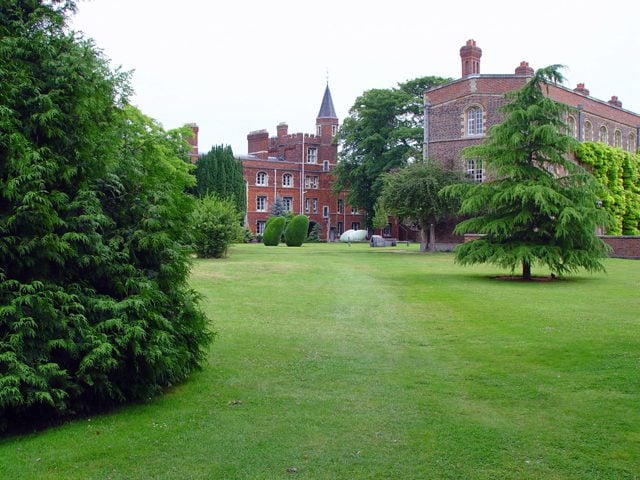
(Wikimedia Commons photograph by Peter Church)
Three passages from a response to Richard Dawkins by the distinguished British writer and Cambridge University academic John Cornwell, editor of such volumes as Nature’s Imagination, Explanations, and Consciousness and Human Identity and author of such books as Coleridge: A Critical Biography, Hitler’s Pope, Power to Harm, Hitler’s Scientists, and The Pope in Winter:
I want to write to you now about your Utopia. You have issued a glowing promise of ultimate happiness, if only your readers will trust in you. You want them to believe in a paradise that will be theirs when religion is finally wiped from the face of the Earth. You sing to them a version of John Lennon’s famous song “Imagine”.
“Imagine . . . a world with no religion. Imagine no suicide bombers, no 9/11, no 7/7, no Crusades, no witch-hunts . . . no Israeli/Palestinian wars, no Serb /Croat/Muslim massacres, no persecution of Jews as ‘Christ-killers’, no Northern Ireland ‘troubles; . . . no Taliban to blow up ancient statues”.
Your list has quite a ring to it (although some of your instances might well have been the result of secular tensions), but it omits two catastrophic eras in recent history: Stalin’s Soviet Union and Hitler’s Germany. Should we be concerned that Stalinism and Nazism revealed the kind of world that emerges when religion acquiesces not to just anything, but to science as ideology combined with militant atheism? . . .
Have you read the Table Talk ramblings of Hitler on religion’s capitulation to science? Just listen to him! “The dogma of Christianity gets worn away before the advances of science. Religion will have to make more and more concessions. Gradually, the myths crumble. When understanding of the universe has become widespread . . . then the Christian doctrine will be convicted of absurdity.” . . .
Religion does not necessarily lead to evil. Human wickedness, persecutions, massacres, torture, ethnic cleansing arise from a complexity of human motivations — fear, insecurity, idealism, paranoia — in a mix of political, social, ideological, scientific, and yes, at time religious contexts. When religion appears to be a factor in conflicts — take Ireland, or the Balkans, or the Arab-Israeli conflict — it may be just one marker of difference, in association with others, reinforcing a variety of tensions that in turn represent a wider ambit of antagonisms — geographical, historical, tribal. But I can quite see that to accept this point would not suit your thesis.
John Cornwell, Darwin’s Angel: An Angelic Riposte to The God Delusion (London: Profile Books, 2007), 85-86, 88-89, 90-91.
Bill Hamblin and I have occasionally written on related themes. See, for example:
“Is Islam a primary cause of international violence?”
“Is Islam a religion of peace?”
“Of Napoleon and ‘religious wars'”
“John Lennon was wrong, but right at the same time”











